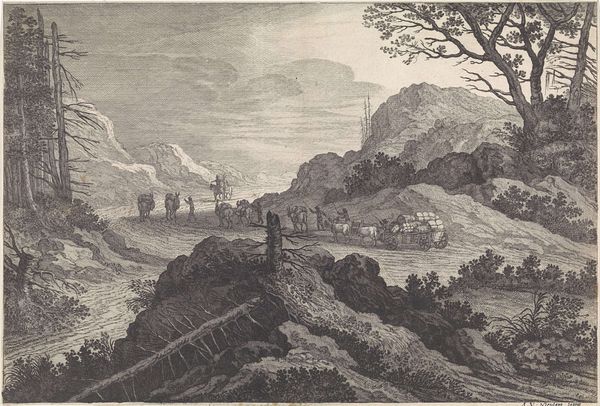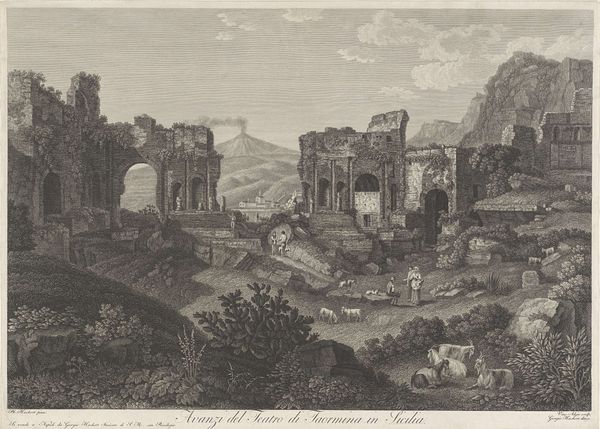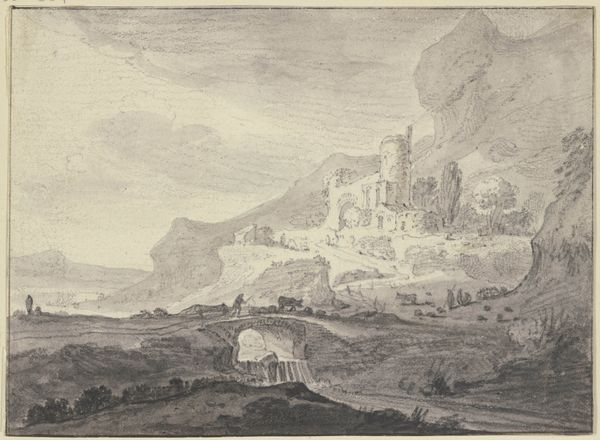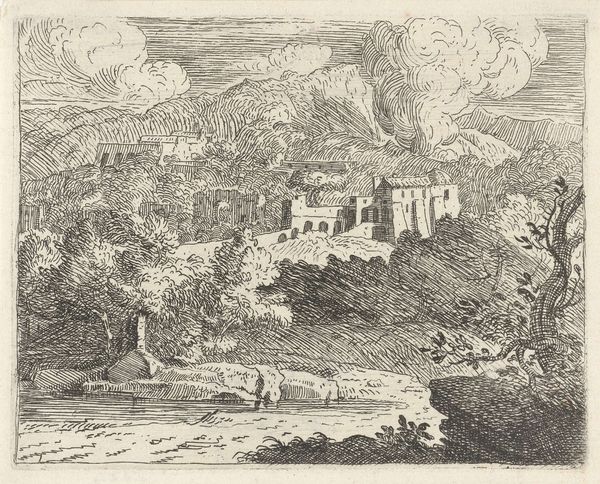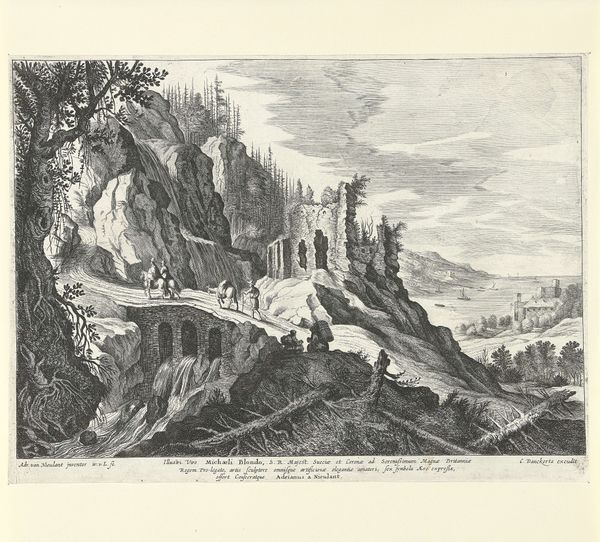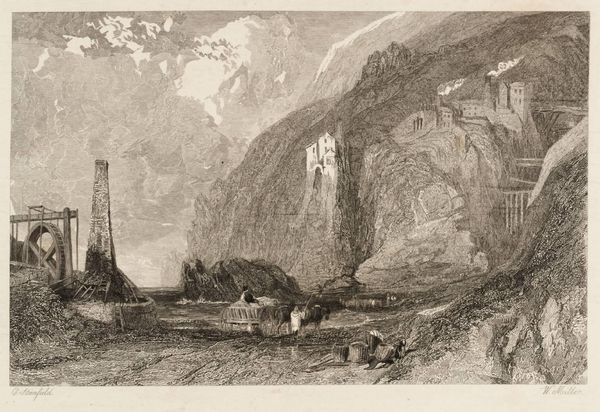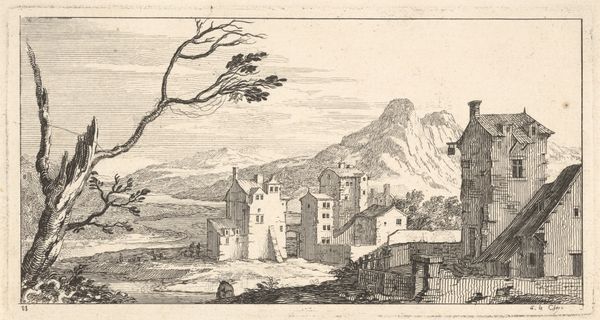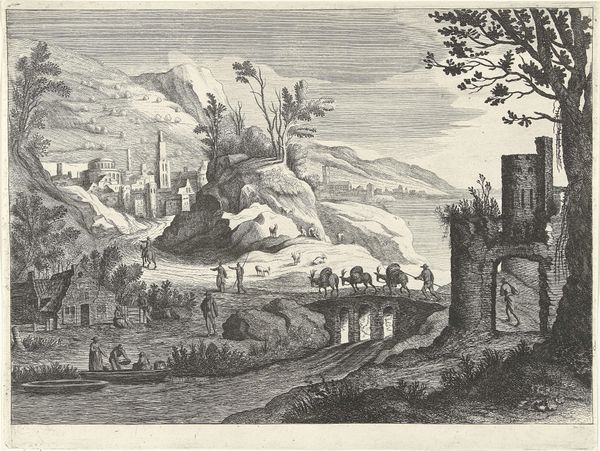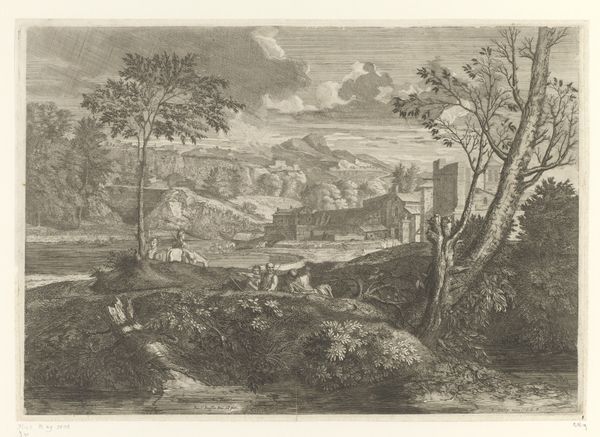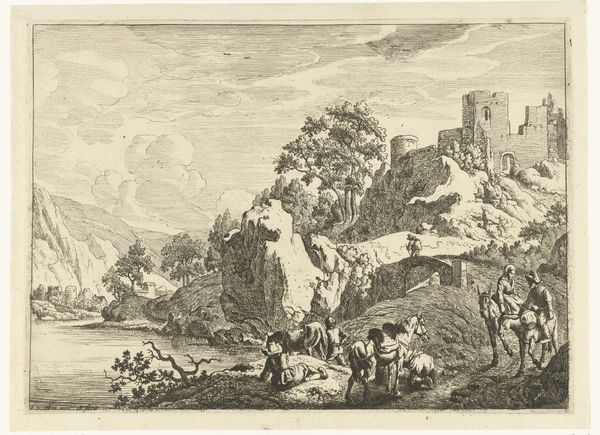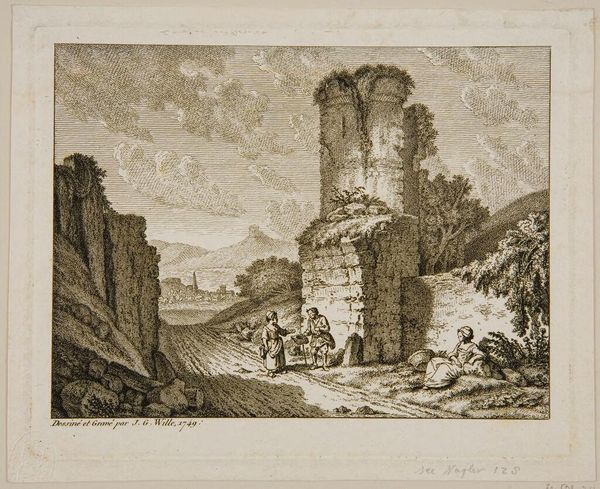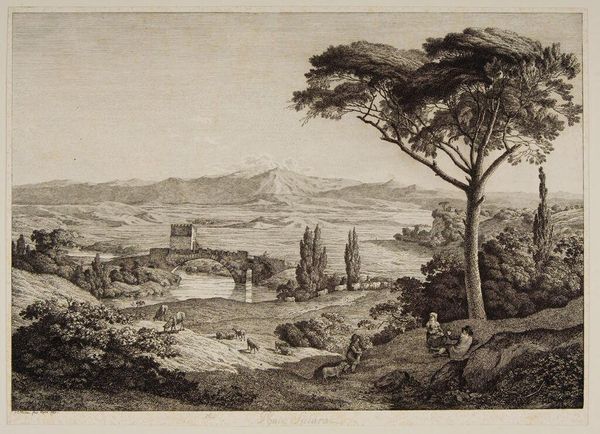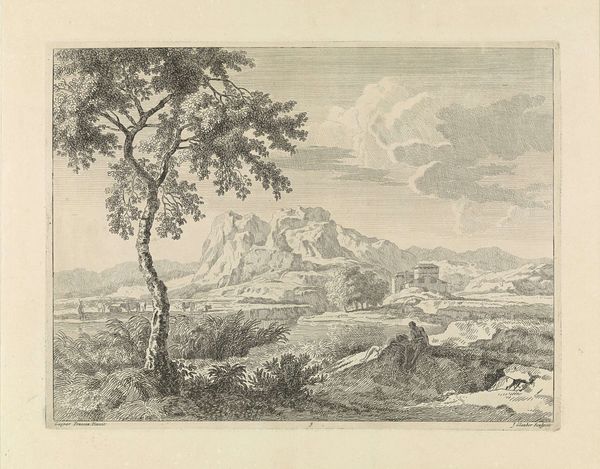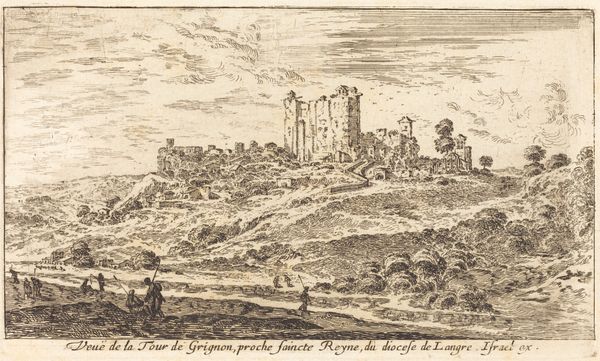
#
pencil drawn
#
quirky sketch
#
pen sketch
#
pencil sketch
#
old engraving style
#
river
#
personal sketchbook
#
sketchwork
#
pen-ink sketch
#
pen work
#
pencil work
Dimensions: height 227 mm, width 322 mm
Copyright: Rijks Museum: Open Domain
Pieter Nolpe created this landscape with a ruin sometime in the 17th century, using etching. A copper plate would have been covered with a waxy, acid-resistant ground. The artist then scratched an image into the ground with a needle, exposing the metal. Immersing the plate in acid would bite into the exposed lines, creating recessed marks. This matrix was then inked and pressed onto paper, transferring the design. Look closely, and you can see how the varying depths and densities of line create a wide range of tones and textures. The sharp, precise quality of the etched line lends itself well to the depiction of architectural details, while looser, more gestural marks evoke the atmospheric conditions. Consider the labor involved in such an undertaking. It demanded technical skill, patience, and a deep understanding of materials and processes. Nolpe’s print makes us consider the amount of work involved in its production, challenging any divide between art, craft, and industry.
Comments
No comments
Be the first to comment and join the conversation on the ultimate creative platform.
